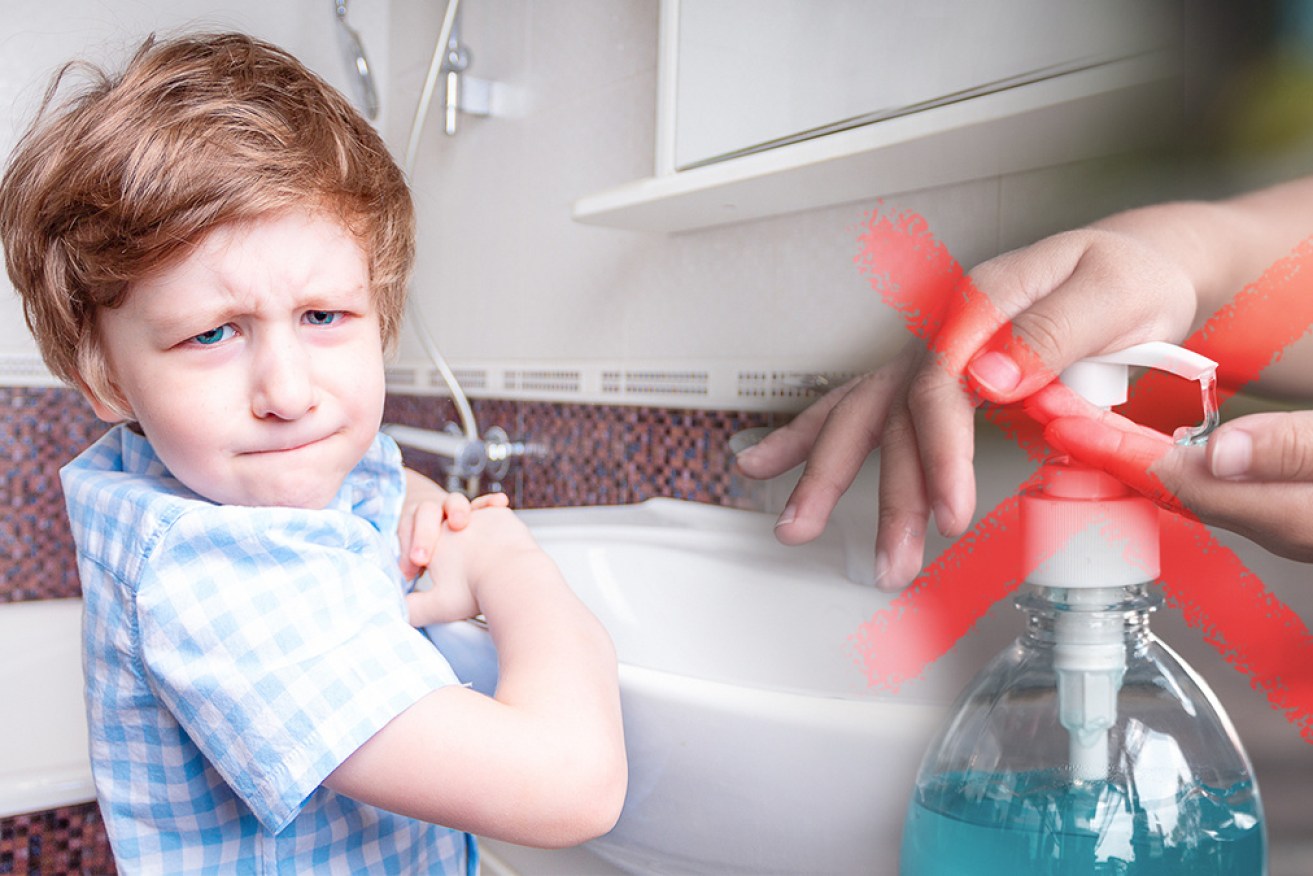Skip the soap: Australian kids struggle to wash their hands properly


Not enough Australian children are using soap when washing their hands at school, a new survey shows. Photo: TND/Getty
Australian children are not washing their hands with soap at school as regularly as British or Indonesian students, a global report shows.
This is despite Australian health authorities promoting good hygiene and hand washing with lots of soap as critical to preventing the spread of COVID-19.
The survey, conducted by the Global Hygiene Council, revealed nearly half of Australian children aged five to 10 years old admitted to skipping the soap when washing their hands at school.
Disturbingly, 36 per cent have never learnt to wash their hands at school – the lowest out of all countries surveyed – and 68 per cent have seen their classmates go to the toilet and not wash their hands afterwards.
Hygiene at home, however, was a different story.
The study found 71 per cent were always using soap at home – a significant jump from just 55 per cent at school.
As part of the survey, children’s hygiene habits were assessed across seven countries: United Kingdom, Indonesia, China, Australia, Saudi Arabia, India and South Africa.
British students aged five to 10 were the most diligent hand washers at school, the study found.
In the UK, 75 per cent said they washed their hands with soap every time at school, and 81 per cent at home.
Indonesian students were ranked closely behind, with 73 per cent washing their hands with soap at school and nearly 90 per cent at home.

Every year in October, Indonesian students celebrate Global Handwashing Day. Photo: Getty
The worst hand washers were found in South Africa, with just 40 per cent of children washing their hands with soap at school, and India, where only 49 per cent said they used soap at school.
But the poor figures in these countries is hardly the fault of the children.
In many cases, hand soap simply wasn’t available.
According to the survey, only 60 per cent of children said soap was always available at school, with one in 10 stating soap was never available.
Why is proper hand washing so important anyway?
Hand hygiene is one of the most effective ways you can help prevent the spread of COVID-19, according to the World Health Organisation.
That’s because the coronavirus mainly spreads through air droplets, or contact with infected people or contaminated surfaces like doorknobs.
For example, if you scratch your face immediately after grabbing a shopping trolley that has been sneezed on by an infected person, you could potentially contract the virus.
But if you wash your hands thoroughly (or use hand sanitiser) after touching the infected trolley, then your chances of falling ill are much lower.
Dr Sumanth Gandra, an assistant professor at Washington University School of Medicine, said hand washing not only helped stop the spread of COVID-19, it also prevented the spread of common illness like gastrointestinal infections.
Good hygiene should be a life-long habit, not just in the time of the coronavirus, he said.
“It is essential that healthy hygiene habits, such as washing hands for 20 seconds with soap and water, are ingrained into the next generation to help prevent the spread of future outbreaks and to protect families from infections,” Dr Gandra said.








